Natural herbs have been used for healing for thousands of years. Many ancient herbs still have significant health advantages today. They can aid in pain alleviation, stress management, better sleep, and general wellness.
Modern science is more closely examining these botanicals. Research suggests that several of them can boost health organically.
This article explores historic herbs, their advantages, and modern wellness applications.
1. Kratom
Kratom is a Southeast Asia tropical herb from the Mitragyna speciosa tree leaves. People from different countries have used it for centuries to relieve pain and boost energy. However, many still ask, “Is Kratom legal in Canada”? Well, yes, it is, but its sale for human consumption is restricted under Health Canada regulations.
Kratom contains alkaloids, substances meant to be painkillers. These compounds interact with brain receptors to reduce pain. Many people use Kratom for chronic pain management. Some also find it beneficial in lowering anxiety and improving mood. Taken in modest dosages, it can boost concentration and vitality. Larger doses may promote relaxation and even sedation.
Kratom can be ingested as tea, pills, or powder. Many users prefer tea because it is easy to prepare. Still, Kratom should be taken sensibly. High doses might have negative effects such as nausea, disorientation, and dependence. Before using Kratom, always see a healthcare practitioner—especially if you take medications or have current medical issues.
2. Ashwagandha
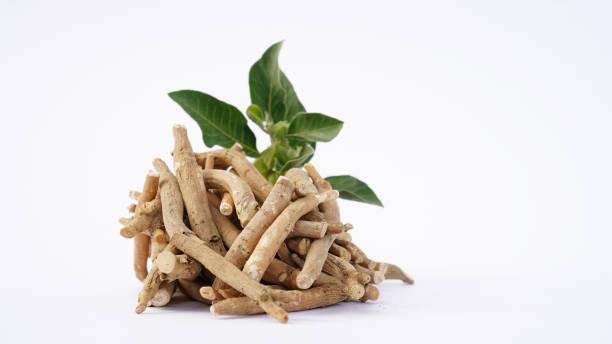
One potent Indian herb is ashwagandha. It has been used in Ayurveda for thousands of years and is renowned for boosting strength and lowering stress.
Ashwagandha helps balance cortisol, the stress hormone. Reduced cortisol levels can help one be calm and lessen worry. It is also known for boosting energy and stamina. Some people find it helps with brain function and focus.
Ashwagandha can also help people sleep better by quieting their minds. It can also help balance hormones, particularly in women experiencing stress-related problems.
Ashwagandha can be taken in capsules, powders, or teas. It is often combined with milk for better absorption. Before bed, mix the powder with either warm milk or water and sip. Regular use can improve sleep quality and help manage daily stress. Although it is usually safe, avoid it while pregnant without medical advice.
3. Turmeric
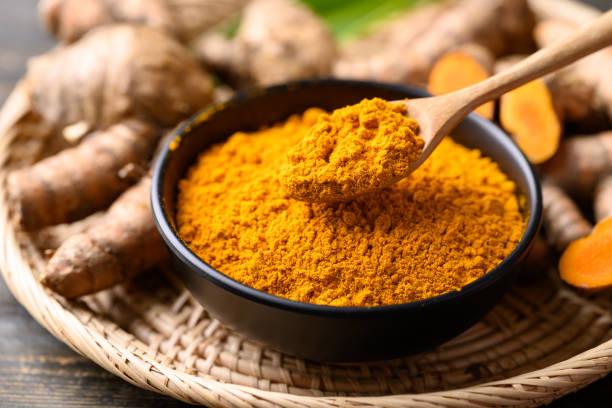
Turmeric is an Indian golden-yellow spice. Ayurveda and traditional Chinese medicine have long employed it for its therapeutic qualities. Turmeric’s active ingredient is curcumin.
Curcumin is known for its anti-inflammatory properties. It can help lower swelling and pain in illnesses such as arthritis. Besides, it aids digestion and strengthens the immune system. Specific research proves it might enhance brain function and reduce the risk of chronic conditions like heart disease and diabetes.
You can add turmeric to food and drinks or take it as a supplement. It is widely used in curries and soups for flavor and health advantages. Curcumin is better taken when mixed with black pepper because of piperine, a natural compound in pepper. While most people find turmeric safe, it should be used in moderation, as too high a level may cause stomach problems.
4. Ginseng

Traditionally, Chinese medicine uses the root ginseng. Often called a natural energy booster, ginseng has been used for thousands of years for its therapeutic powers.
Ginseng eases tiredness and raises energy levels. It enhances brain function and may improve memory. Some research claims it helps strengthen the immune system and manage stress. Ginseng also includes antioxidants that fight inflammation. It may reduce blood sugar levels and enhance overall wellness.
Ginseng can be taken as powder, pills, or tea. It is often incorporated into herbal energy drinks. Ginseng tea is easy to prepare and can be taken regularly. Although ginseng is usually safe, very high doses should be avoided since it might cause headaches or sleeping difficulties.
5. Ginger
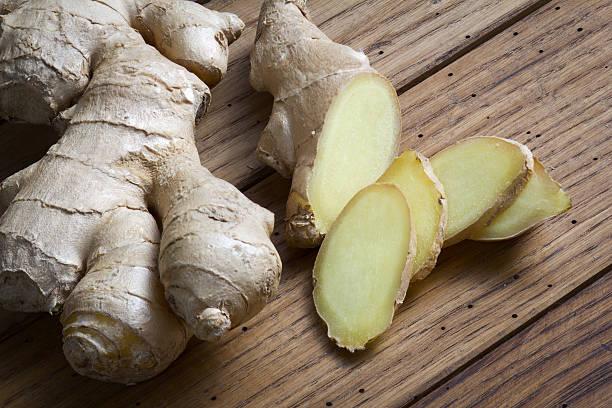
Ginger is a root that has been used in traditional medicine for centuries. Originally from Southeast Asia, it is well-known for its digestive qualities.
Ginger lessens indigestion and nausea. It’s frequently used to treat morning and motion nausea. Ginger also has anti-inflammatory qualities that can aid with muscle pain and stiffness. Some people use ginger tea for sore throats and colds. Ginger contains chemicals like gingerol that can relieve inflammation and pain.
You can add ginger to meals, make it into tea, or take it as a supplement. It is often used to cure colds and sore throats. Most individuals find it safe in small quantities. However, if you have a sensitive stomach, avoid excessive doses, which can induce heartburn or discomfort.
6. Holy Basil (Tulsi)
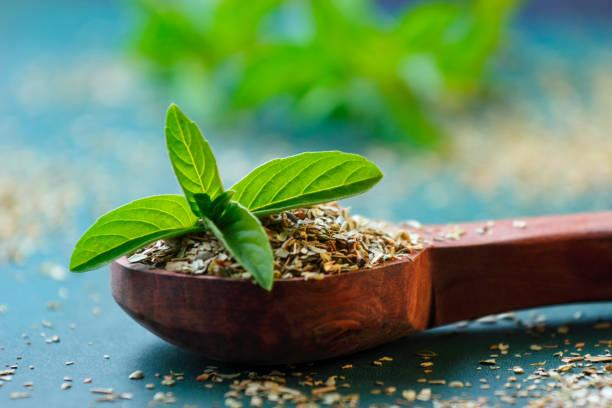
In India, holy basil—known as Tulsi—is a revered herb. For thousands of years, Ayurveda has used it for wellness and healing.
Tulsi supports immune system functioning and helps lower stress. Its anti-inflammatory and antibacterial qualities are also well-known. Some people drink Tulsi tea to promote respiratory health and ease cold symptoms. Further, Tulsi leaves help balance blood sugar levels.
Holy basil can be consumed fresh, in pills, or as tea. Herbal tonics and stress-relieving combinations sometimes call for it. Tulsi tea can be prepared by boiling the leaves in water for a few minutes. While Tulsi is safe for everyday usage in reasonable quantities, too much of the herb may impair fertility.
7. Milk Thistle
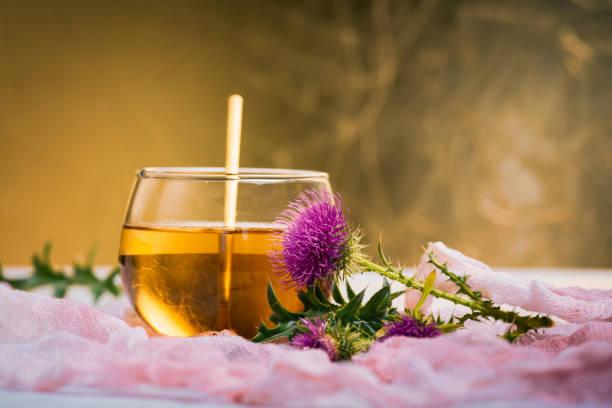
Milk thistle is an herb from the Mediterranean that has been used for liver health for over 2,000 years.
Silymarin is the active chemical in milk thistle. It aids the liver’s natural detox process and helps guard it from poisons. Milk thistle also helps improve skin condition and lower irritation. Some people claim it helps with digestion and lessens bloating.
Milk Thistle may be taken as a tincture, pill, or tea. It is usually included in liver detox formulas. Although it is typically safe, it can interact with some drugs. Before using it consistently, see a healthcare provider.
8. Peppermint
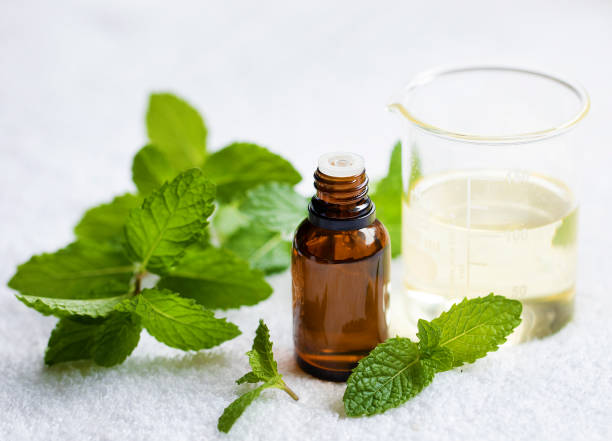
Peppermint is a cooling herb that is beneficial for intestinal health. It was used medicinally in ancient Egypt, Greece, and Rome.
Peppermint relieves stomach aches, bloating, and indigestion. Its menthol also reduces headaches and tension and serves as a muscle relaxant. Some people use peppermint essential oil for aromatherapy and stress relief.
You can use peppermint as an essential oil, capsule, or tea. It is easy to make peppermint tea, which can be drunk every day for stomach problems. However, avoid using too much, as it might aggravate acid reflux or interfere with medications.
Conclusion
Ancient herbs have been trusted for centuries for healing, and modern science now verifies many of their health benefits. Herbs that naturally support wellness include turmeric, ashwagandha, and kratom. Always use herbs sensibly; if in doubt, see a medical practitioner. These old herbs have strong therapeutic qualities, so integrating them into your wellness program will help.
Ancient Herbs For Modern Wellness: Benefits And Uses